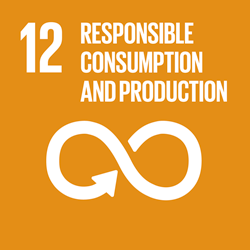Technological watch
Effect of Irrigation Management and Water Quality on Soil and Sorghum bicolor Payenne Yield in Cape Verde
Treated water use for agriculture will promote sustainable irrigation development and food sovereignty. The aim of this study is to assess the feasibility of subsurface drip irrigation (SDI) compared to drip irrigation (DI) and of reclaimed water (RW) versus conventional groundwater (CW), to produce forage sustainably in a warm arid region. A sorghum experiment was conducted in a field on Santiago Island (Cape Verde). A forage yield of 200 t fresh matter·ha−1·year−1, irrigated by RW, was obtained. Considering Cape Verde regulations, it is possible to irrigate sorghum using a drip system and RW without adding fertilizers. Soil fertility (OM and Ntot) increased, while risk parameters (EC, nitrate, and Na) returned to their initial values after the rainy season. The best irrigation water use efficiency was obtained by RWSDI (200 L·kg−1 DM) compared to RWDI, which needed 34% more water. According to the results, a high nitrate elimination rate in treatment plants might not be desirable if agricultural reuse is planned to irrigate high-N-demanding species. Establishing new salinity tolerance levels under reuse conditions with SDI, and irrigating in rainy months to promote the lixiviation of salts in arid regions are also necessary.
Publication date: 12/01/2023
Author: María del Pino Palacios-Diaz
Reference: doi: 10.3390/agriculture13010192






